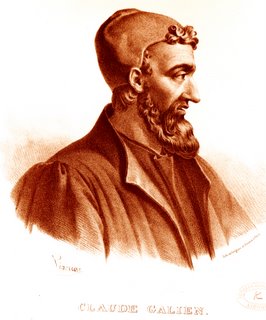
Hippocrates Refusing Gift from Alexander
Psychology has long been a common human interest, but it has been considered a formal scientific discipline only since the late nineteenth century. Several perspectives and disciplines contributed to the shaping of psychology as a science: philosophical perspectives; experimental methods and discoveries; therapeutic applications; and theoretical developments.
Philosophical Roots Of Psychology
Early Medicine
Before 500 BC in the Western World, medical practices were largely controlled by priests, who explained both mental and physical illnesses in terms of divine causes.

Hippocrates(460-377 BC) rejected mystical and superstitious explanations for bodily processes. He argued that physical well-being, illness, and healing were natural processes. In The Art Of Healing, Hippocrates described behaviour patterns recognizable to modern psychologists as behavioural disorders. The Nature Of Man contains his theory that the natural elements -- earth, air, fire and water -- combine to form, bodily humors or natural fluids like blood, black bile, yellow bile, and phlegm. Any imbalances among these four humors would result in illness or disease.
Galen(AD
 130-200), a physician in Imperial Rome, extended Hippocrates's ideas by suggesting a better understanding of human nature and emotions. Galen emphasized the usefulness and effectiveness of the parts and processes of human anatomy. He further argued that imbalances among the bodily humors would result in extremes or disorders of temperatment. Too much blood would make a person "sanguine" or cheerful, excessive yellow bile would make one "bilious" or angry, too much black bile led to "melancholia" or sadness, and too mcuh phlegm of course made one "phlegmatic" or lethargic and sluggish.
130-200), a physician in Imperial Rome, extended Hippocrates's ideas by suggesting a better understanding of human nature and emotions. Galen emphasized the usefulness and effectiveness of the parts and processes of human anatomy. He further argued that imbalances among the bodily humors would result in extremes or disorders of temperatment. Too much blood would make a person "sanguine" or cheerful, excessive yellow bile would make one "bilious" or angry, too much black bile led to "melancholia" or sadness, and too mcuh phlegm of course made one "phlegmatic" or lethargic and sluggish. These early ideas of influences on behaviour, while obviously crude and simplistic by today's standards, ahve persisted in our language(eg. a "sense of humour") and our ongoing interest in how bodily processes affect thought, emotions and action.
No comments:
Post a Comment